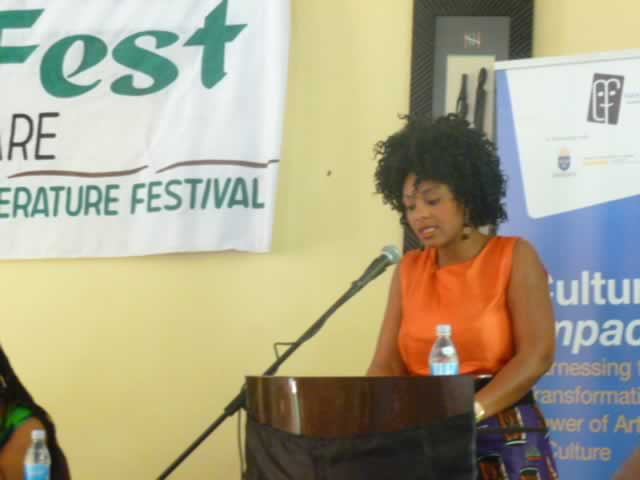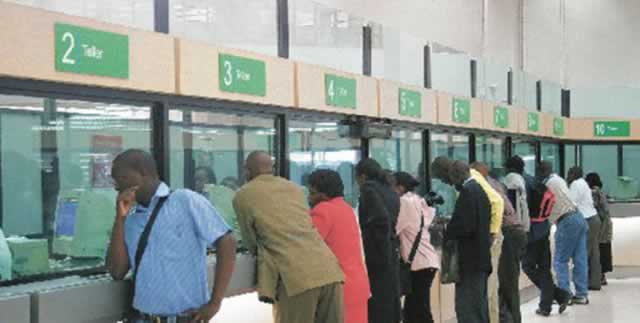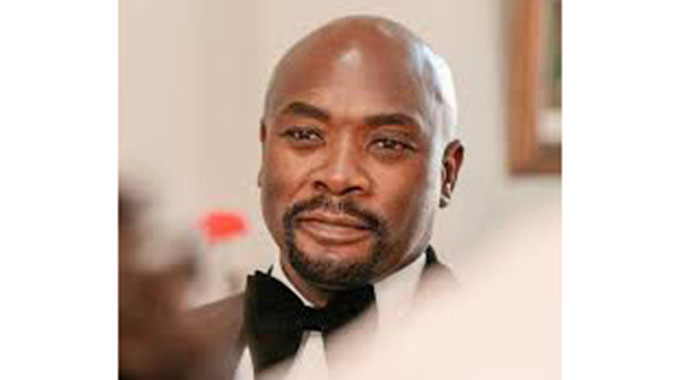Tackling stereotypes in African literature

Beaven Tapureta Bookshelf
The true African image has been smudged by the grand narrative of a continent composed of incapable black people totally enmeshed in poverty, disease, tribal wars, HIV and AIDS. The narrative’s ulterior intention has been to shock while it ignores the different humane stories of Africa as a continent of people not different from the rest of the world.
At an international literature festival, ‘Litfest’ Harare, held from November 26-28 at various venues in the city, this issue of ‘identity crisis’ and stereotypes in African literature received outstanding attention and the heat around the debate proved that now is the time for Africa to write her own story.
Litfest Harare, which this year ran as the first full-scale edition after the inaugural run last year, was held under the theme “Setting Off – Side by Side”. The festival came with an exciting programme of panel discussions, book launches, theatre, literary quiz, music, poetry and a tribute to the late writer Chenjerai Hove. Participants were drawn from Zimbabwe and from as far as the USA, Burma and Norway.
The outcry for Africa’s disentanglement from ‘the dangers of the single story’ echoed on the festival’s first day with USA-based writer Barbara Mhangami-Ruwende who, in her keynote address at the Sapes Trust, talked about “Literature, Stereotypes and Women’s Safety”, moderated by Isabella Matambanadzo with Culture Fund director Farai Mupfunya being the respondent.
Ruwende said the festival’s observance of gender in its programme also comes at a time when the annual international campaign dubbed “16-Days of Activism Against Gender-based Violence” has also begun.
She narrated her personal story of growing up in Zimbabwe, her occasional visits to the rural areas and then relocating to the USA. At all stages, she said she was inquisitive about the location of the African woman in African literature.
“I got tired of the absence of stories in which Africans, particularly women, were represented in powerful creative works. I became restless with the desire to read stories that dealt with real issues that African women faced in their numerous daily experiences,” she said.
The stereotypes in literature today have their sources in the early works of writers such as VS Naipaul and Joseph Conrad, said Ruwende.
“Unless and until African women start to write stories that they enjoy reading, stories with which they can identify themselves with, the stereotypes will continue,” Ruwende said. This was echoed by Mupfunya.
He said young women need the power to defend themselves and learn from some of the resilient women ever to come from Africa, such as Mbuya Nehanda of Zimbabwe who lodged resistance against early colonialists and Queen Nzinga of Angola who fought against the slave trade.
Acknowledging that “her story is an essential part of his story”, Ruwende encouraged men to be part of the battle. Nuruddin Farah, the renowned Somali writer, once said, “Men ought to be liberated from themselves because unless men are free, women can’t be free. If one of them is in chains, the other one will be taken into chains as well.”
Last year at the launch of a “Caine Prize” short story anthology in Harare, the same question of what is an African story came up and the debate centred on the role of Western literary prizes in shaping the African story.
The same question was revisited: ‘should writers be simply called writers and not ‘African writers’ or ‘women writers’?
There has been a kind of African literature termed ‘Porn poverty’ (or the pornography of poverty), said Ruwende, and this is what has provoked the new generation of African writers scattered all over the world. Celebrated Nigerian writer Chimamanda Ngozi Adichie is known to have said that “this single story of Africa ultimately comes from Western literature”.
Ruwende, in her analysis of the matter, said the Western literary agents, editors and publishers take advantage of some writers in foreign lands whom they then use to perpetuate an Africa which is populated, in the words of Adichie, by “incomprehensible people, fighting senseless wars, dying of poverty and AIDS, unable to speak for themselves and waiting to be saved by a kind, white foreigner.”
For African writers living in the diaspora, Ruwende said the label ‘African’ is loaded. “The label means that an African writer is a writer not only from Africa but somebody who writes a particular kind of literature that some of us call ‘poverty porn’.”
Yet for writers writing from home in Africa, the label is as good as not being there because what matters to them most is ‘the story’ — its images, values, symbols, and characters that it represents. In his presentation, writer Memory Chirere clearly defined his context and said these labels ‘African writer’ and ‘women writers’ have been pushed by politicians, publishers and booksellers, hence they are “labels of convenience, imposed on us”.
This was supported by Kizito Muchemwa “The question of location, identity and belonging, of being African, means to me the multiplicity of locations that relate to the continent. African writing is therefore that writing that responds to the different historical locations of the people on the continent, regardless of their skin colour or ethnicity”.
Festival participants from outside the country included Elisabeth Beanca Halvorsen, a Norwegian writer who was part of discussions on whether digital platforms are doing good or harm to literature and the role of research in novel writing. Halvorsen is also in the process of writing an ‘unusual’ book on the late great writer Doris Lessing and her play, “Guinea Fowl”, again based on Lessing, was performed at the Litfest official opening on November 27.
Han Lynn, a poet from Burma, read from his anthology titled “Para” (2015, Chant Chan Books).
Musician Prudence Katomeni talked about what lyrics mean to her. Shepherd Mutamba, author of “Tuku Backstage”, a biography, defended the role of a writer which is to reveal what lies in the dark and let readers decide, to take it or leave it.
He was among panelists, who handled the topic “How deep (or far) should biographies go?” The festival challenged writers to think about issues that take away the dignity of their African identity.










Comments